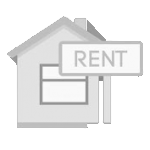Does self-assessment apply to me?
Anyone who works for themselves needs to submit a self-assessment tax return, this applies even if you are also employed elsewhere. This can include income from property rental. Also, if any badges of trade can be confirmed, any items you may sell regularly, keep only for a short period of time and sell or work performed on goods to make them more marketable could indicate towards trading and would class as being self-employed.
You would also be required to fill in a self-assessment if you or your partner earn more than £50,000 and one of you claimed child benefit.






